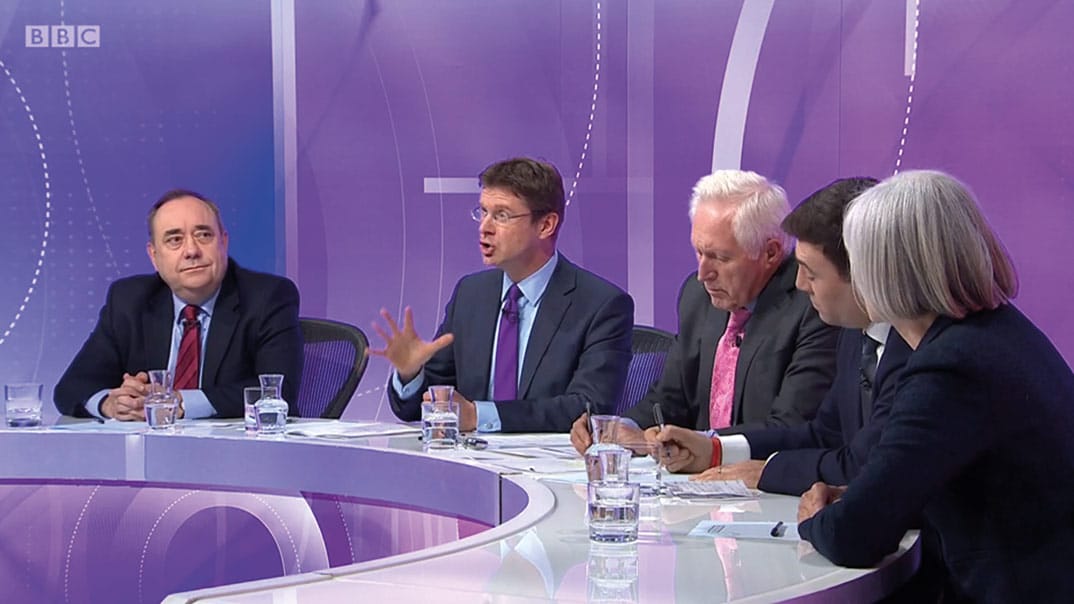MP Greg Clark found himself pinned down on the subject of immigration and the European Union when he appeared on the panel of BBC1’s Question Time last week.
A member of the audience had asked if Britain would be able to control economic migration if it chose to remain in the EU in next month’s referendum. The weekly topical debate, that attracts 2.7million viewers, was being recorded at Hull City Hall.
A human resources worker, she described how the job market had been flooded by hard-working, low-paid workers from Eastern Europe, and how one worker had become depressed because no one else on his assembly line spoke any English during a 10-hour shift.
“There are not an infinite number of jobs,” she said.
“There isn’t infinite housing, infinite NHS.”
It was claimed that the Conservative Government’s decision to introduce a higher minimum wage would only serve to lure more immigrants from Eastern Europe to this country in order to seek work.
However, the Government Minister claimed that the creation of the National Living Wage of £7.20 an hour would mean that British workers would be more inclined to perform these menial jobs in which they had previously shown little interest.
The Conservative Member for Tunbridge Wells was directly challenged by the host, David Dimbleby, to explain – in his capacity as Secretary of State for the Department for Communities and Local Government – how towns and cities would be able to cope with what was described as a ‘massive drain on our resources’ in schools and hospitals.
“You’re the Communities Minister, what’s your answer?” the veteran presenter demanded.
“First of all, we have for the first time the ability to require people to contribute to the benefit system before they can draw on it. This is a very significant change,” he replied.
This claim was rejected by other panellists and members of the audience who said that the migrant workers from countries such as Romania did not come here simply to claim benefits but to find work, a point to which he referred in his next response.
He continued: “Secondly, people come from Eastern Europe to do jobs that other people from this country haven’t been doing. What we’ve had is the introduction of the National Living Wage, and the increased pay can help make those jobs more attractive to people here who haven’t been doing them in the past.”
The debate alluded to the admission made by Home Secretary Theresa May that remaining in the EU would mean that the country would be less able to control the influx of migrant workers from other countries inside the union, even though she was a supporter of the Remain campaign.
Mr Clark is an ardent supporter of remaining within the Union.








